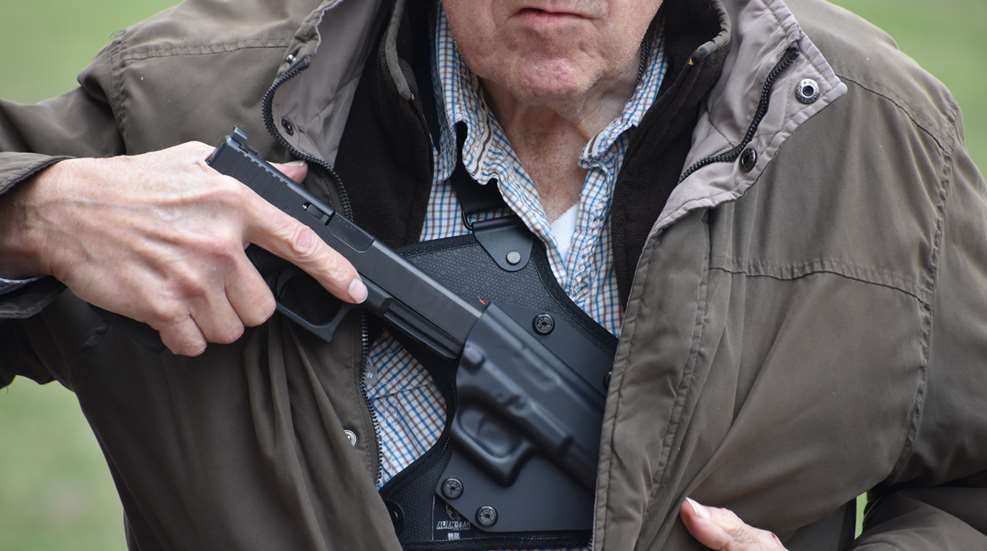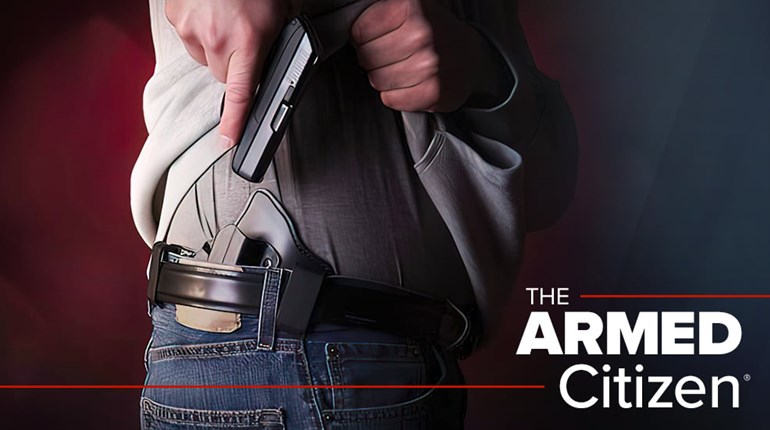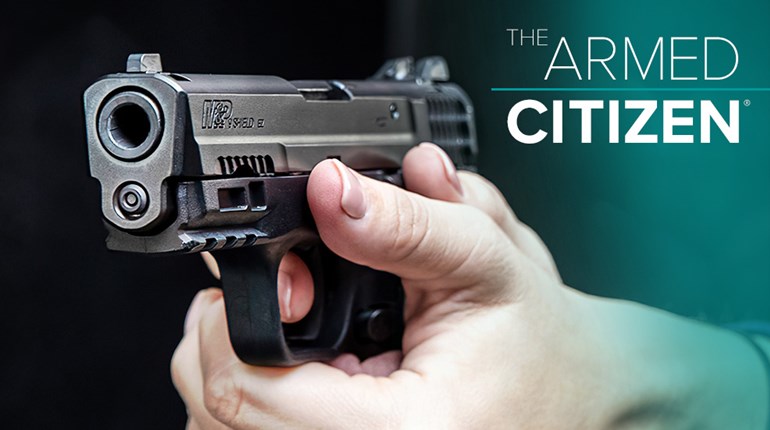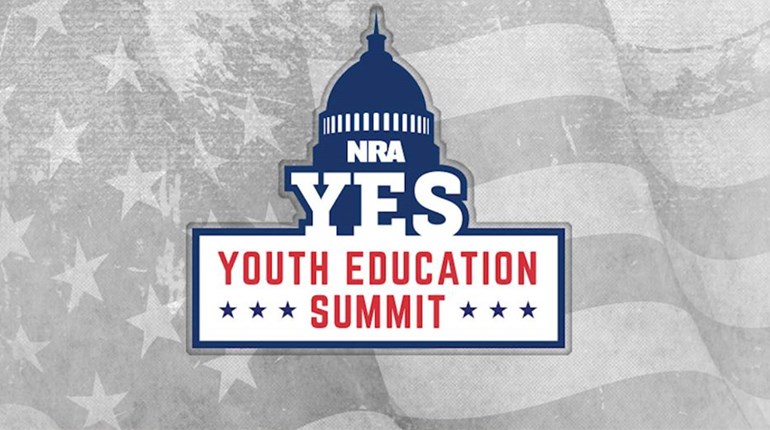
One facet of life every woman, and man, shares as they get older is making sure they take care of their parents and grandparents. When it comes to self-defense and safety, we should not leave our elders out the picture. Here are some ideas for ways to help them prepare for self-defense and to keep their home safe.

Assess the Situation
Before you go off helping grandma or grandpa buy a self-defense firearm, assess whether they are prepared to take on the responsibility. Some of our parents might not have the same skills with firearms that we do. Some of them might not own a firearm—and one thing recent events have brought to light for new firearms owners is that you often cannot and in many cases don’t want to loan out your guns. Legal ramifications can be significant. So making sure that your parent or grandparent can own a firearm and helping them choose one that they can safely and effectively use is a big first step.
For the very elderly, or those with cognitive issues, you might also need to consider whether it is even possible for firearms to be in their house. If you have one parent who is cable, but one who is not, your first step should be making sure there is a safe and proper storage to ensure everyone’s safety! It would be a great investment of time and effort to go with that capable parent to a class and share in what they take on by having a firearm in the home—let them know they are not alone.
Find Their Strengths
Understanding how and why they would use a firearm for self-defense is a part of choosing one. This means that for example, a grandmother with arthritis might be much more capable with a pistol caliber carbine (PCC), that she can shoulder AND use two hands effectively on. Whereas, a pistol with a slide to rack might not be easily controlled or manipulated by the same hands.

The variety of PCCs and magazines can offer even more versatility. You can purchase what is called a 9ARC or 9 mm AR conversion that gives people with strength issues a larger and easier to load magazine. The added bonus is this can fit an AR lower that you might already own, or can be purchased relatively inexpensively!
Practice With the Right Tools
Once you know what firearm your parents or grandparents prefer, get them to practice! Bring the grandkids and go to the range. If it’s time on the family farm plinking, get them in on the fun. But dry fire or draw practice can be very helpful to them learning a new piece of gear.
We recently brought my dad a chest holster because his shoulder mobility has made a belt-mounted concealed carry frustrating. The chest rig is a simple, comfortable solution. It also fits our northern climate and need to have your gun easy to access while wearing a coat. He had it on and was practicing his draw in minutes. Seeing the confidence that just an hour working with it brought him was very good!
Review the Rules
There are many great things about our older generations’ lives that I envy ... they might not have had to sit through Driver’s Ed or Hunter Safety. However, this also means their knowledge of the rules of firearms safety might be pretty non-existent. So without making them feel like you’re talking down to them, share some time with firearms as a family. Ask for their help in teaching the grandchildren or new shooters in the family the rules. And make sure it’s not just one person in the house that has this knowledge. If grandma isn’t interested, and says grandpa will just handle it, make sure she knows that just like driving a car, she needs to understand some simple principles about the tool.

Make Sure They Are Capable!
If you are part of grandma or grandpa buying a brand new firearm, make sure they know how to check if the firearm is loaded, how to lock the slide or bolt back or open. How to load and unload. Make sure they can manipulate the controls and get some time practicing with them. Don’t let them get talked into buying something they cannot physically use.
Take a class with them! Everyone can benefit from a formal class on self-defense. When that involves a firearm, the legal ramifications alone are worth taking a class with a qualified instructor who knows the laws in your state.
Go Over Their Home Safety Plan
Knowing what your parents or grandparents plan to do in emergencies is not just logical in times of uncertainty, it makes good sense at any time. We all establish who should be called if they have a medical emergency, who has keys to their house and car ... it shouldn’t be different for self-defense. Who do they call if they hear a noise at night, besides 9-1-1? Learn if there are good neighbors they can count on, or close family who can be alerted ... all the things you would do for yourself, do with them!
Checklist for Parent /Grandparent Home Safety:
- Keys to house or codes for security—who has them?
- Firearms and ammo—who has access and do they know how to safely use them?
- Code or keys for the safe—who has access?
- Do they have outdoor lights, security system, and other preventative safety measures?
- Who manages important paperwork backups and storage?
- Who has important phone numbers and contact info for insurance, doctors, neighbors, etc.?
- Do you have a list of emergency medicines and prescriptions, as well as doctor/pharmacy contacts?
- Do they have a storage of food, water, emergencies supplies?
- Do they have a plan if their residence becomes unsafe from social unrest?
- Do they keep their cars gassed up?
- Do they have a neighborhood watch and do you have contact info for it?
JUST DO IT!
No matter what age your parents and grandparents are, talking with family about safety is something that should be done before you have serious concerns. A little work to share who, what, why, and how to handle emergencies can go a long way in making your elders more capable and empowering them by lighting a little fire of independence in them.
About the Author: Becky Yackley competes in the shooting sports across the country and around the world with her husband and three sons. She has spent much of the last 20 years holding down the fort while her husband proudly serves our country in both the Marine Corps and state law enforcement. Her writing, blogging, and photography are ways that she shares her unique perspective on firearms, competition, hunting, and the Second Amendment, especially as it applies to mothers on their own. She grew up the daughter of a gunsmith, and with her siblings competed in NRA Highpower and Smallbore, and she has since competed in more disciplines than almost any woman involved in the shooting sports. From IPSC, USPSA, Bianchi Cup, 3 Gun and more, she enjoys sharing that to be proficient and knowledgeable with a firearm is within the reach of anyone! She’s the founder a 501c.3, 2A Heritage Ltd., and works with industry partners and other volunteers who share the ethos of bringing new youth into the shooting sports with personal commitment to safely sharing an historically American pastime















































